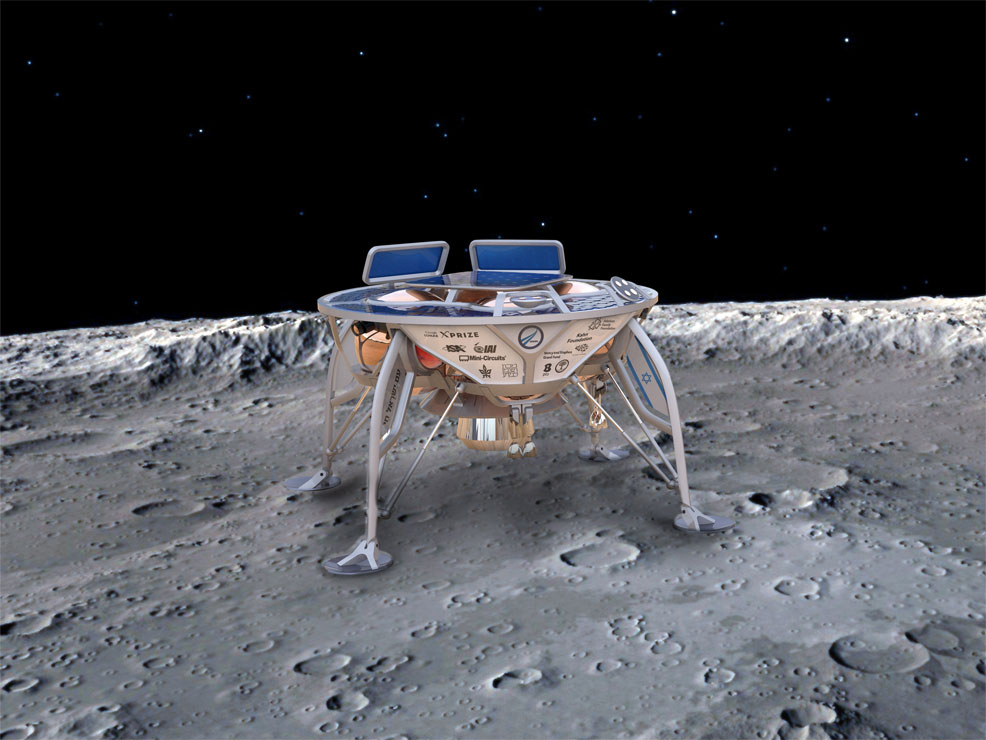
23rd February 2019 Privately funded Moon mission blasts off SpaceIL has launched its Beresheet probe, the world's first privately financed mission to the Moon.
SpaceIL is an Israeli firm, established in 2011 as a nonprofit organisation wishing to promote scientific and technological education. It has been competing alongside several other companies in the Google Lunar X Prize (GLXP) to land a spacecraft on the Moon. SpaceIL's budget for the mission is US$95 million, provided by philanthropists and the Israel Space Agency (ISA). The 160 kg lander they developed is officially named Beresheet (Hebrew: "Genesis"). In 2015, SpaceIL signed a contract for a launch from Cape Canaveral in Florida on a SpaceX Falcon 9 via Spaceflight Industries. Yesterday, it blasted off as a secondary payload (along with a telecom satellite, PSN-6) and is now in Earth orbit. If all goes according to plan, Beresheet will complete several orbits around the Earth and then slowly perform orbit raising. After 1.5 months, the probe will reach the Moon's area of influence, where it will perform manoeuvres to be captured in a lunar orbit. Eventually, it will decelerate until a soft landing is possible on 11th April 2019. If successful, Israel will become only the fourth country to land on the Moon, after the Soviet Union, United States and China. Beresheet is also the first private Moon lander and the first Israeli spacecraft to travel beyond Earth orbit. The mission will study the Moon's local magnetic field to help understand how it formed. It also carries a digital "time capsule" containing over 30 million pages of data including a full copy of the English-language Wikipedia. The planned landing site is at the north of Mare Serenitatis. The planned operational lifetime is only two days, as it has no thermal control and is expected to quickly overheat. "It was very difficult to raise money for this mission because it was really a mission impossible," said Morris Kahn, the project's main donor. "I didn't realise it was impossible and the three engineers who started this project didn't realise it was impossible, and the way we in Israel think, nothing is impossible. We dare to dream. And we really are making this dream come true." The mission's prime contractor, Israel Aerospace Industries, is now considering the commercial possibilities of building several such landers.
Comments »
If you enjoyed this article, please consider sharing it:
|







